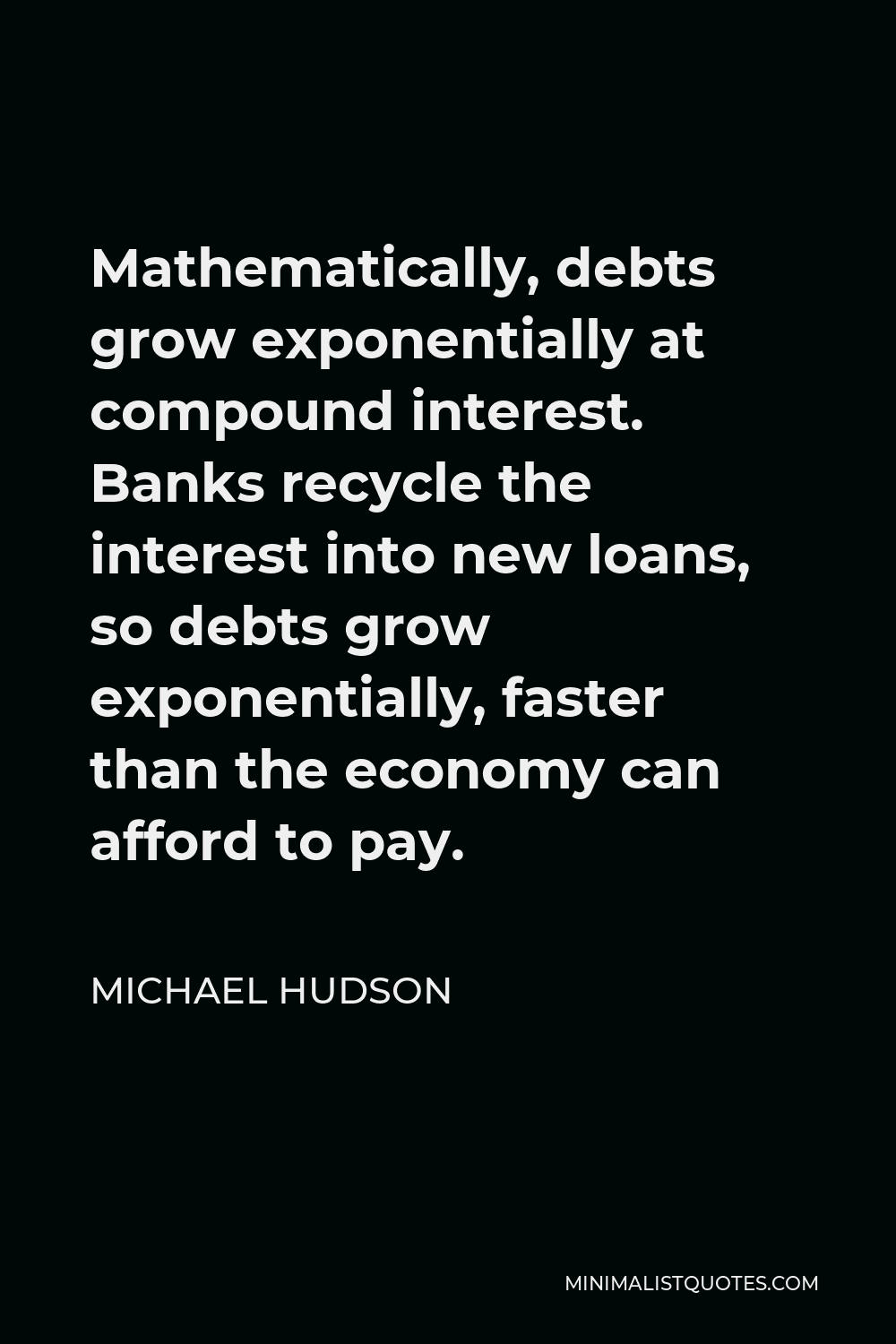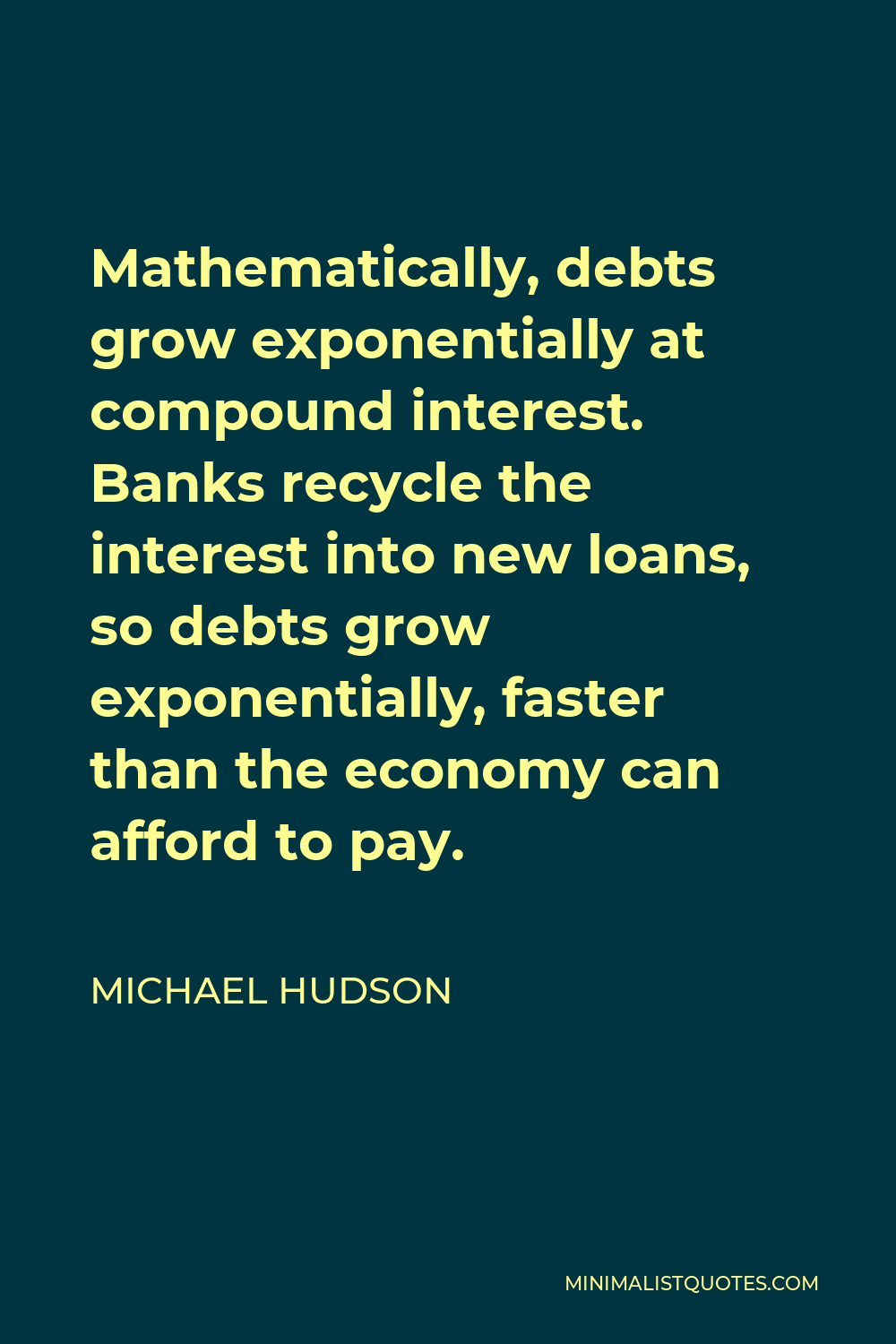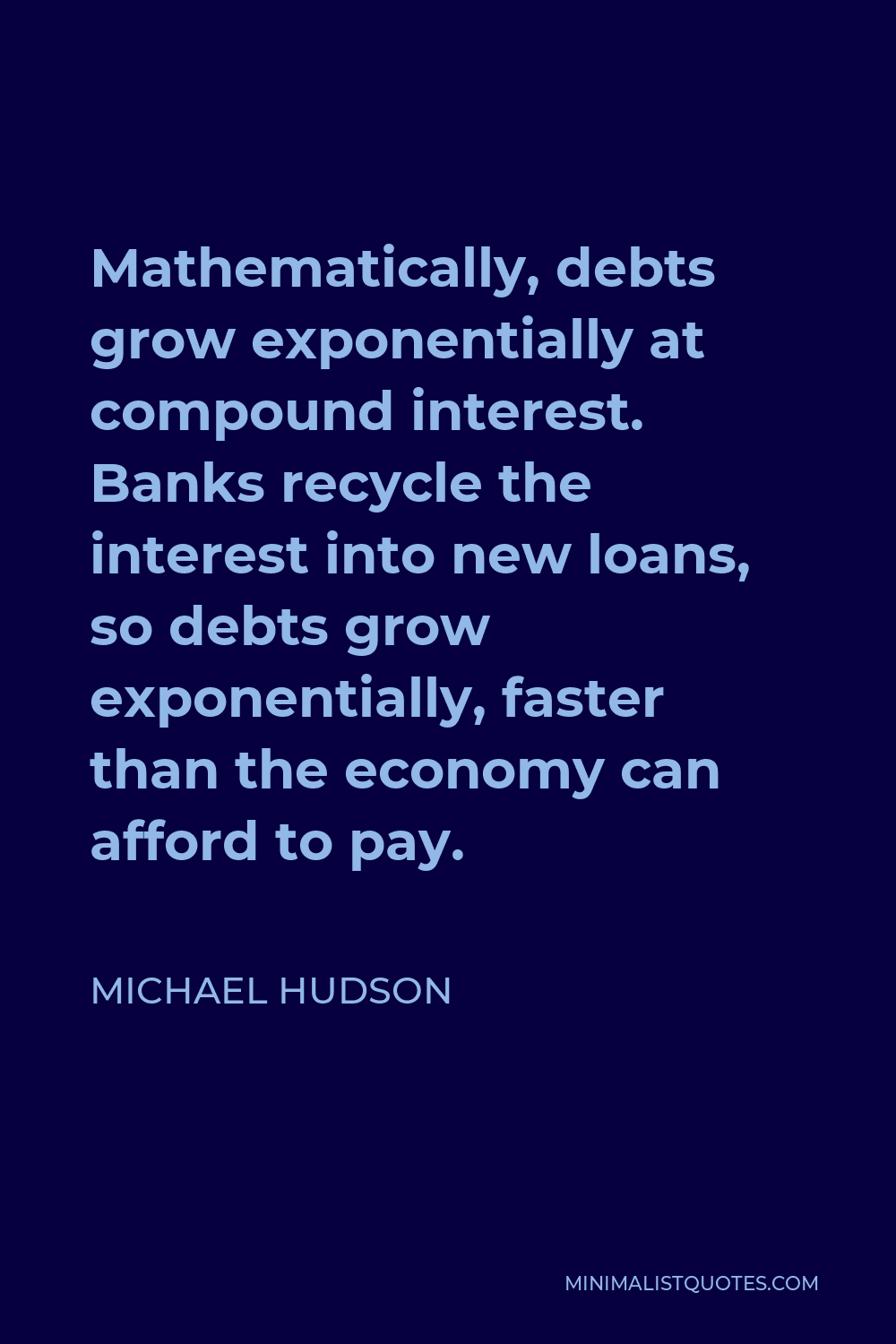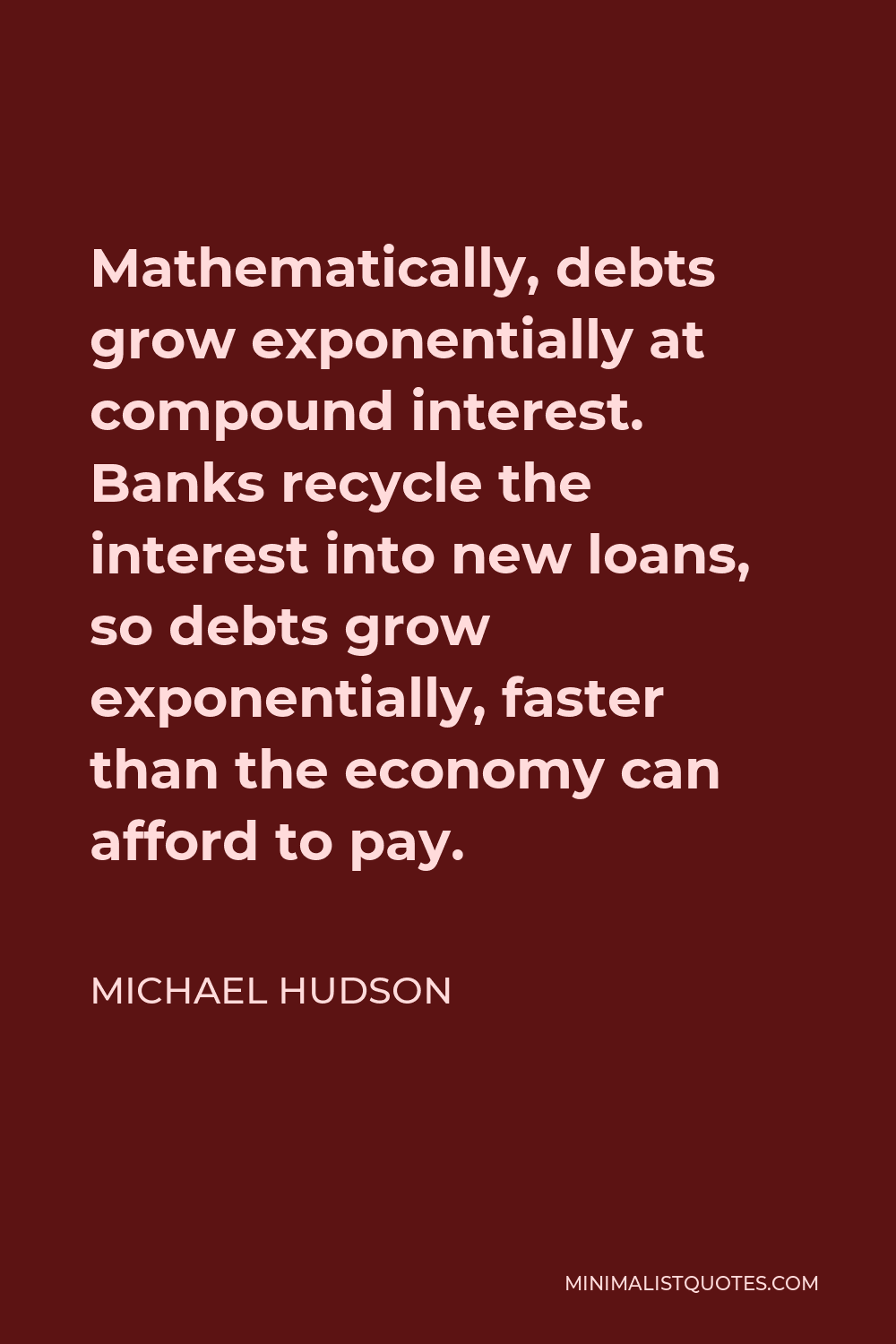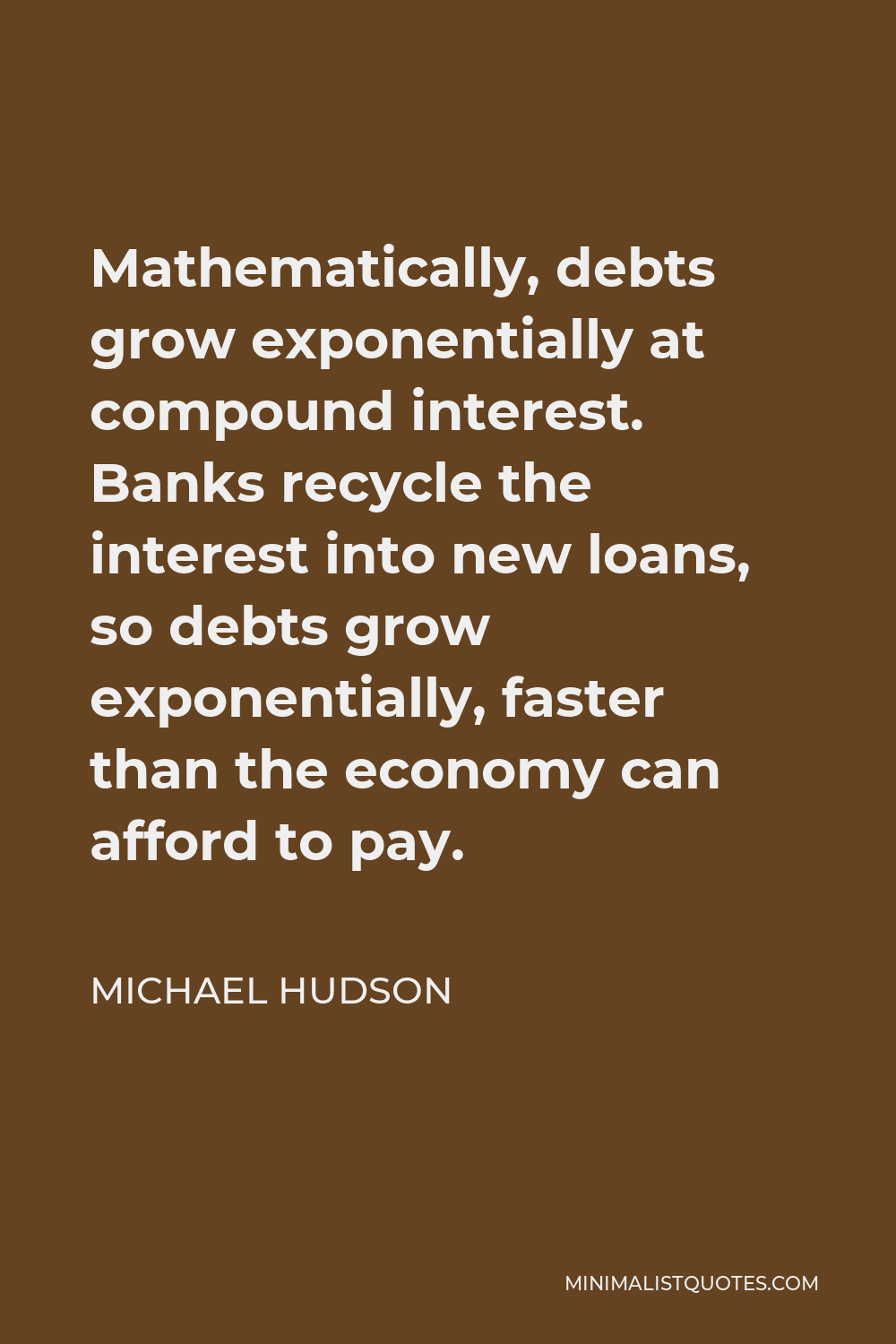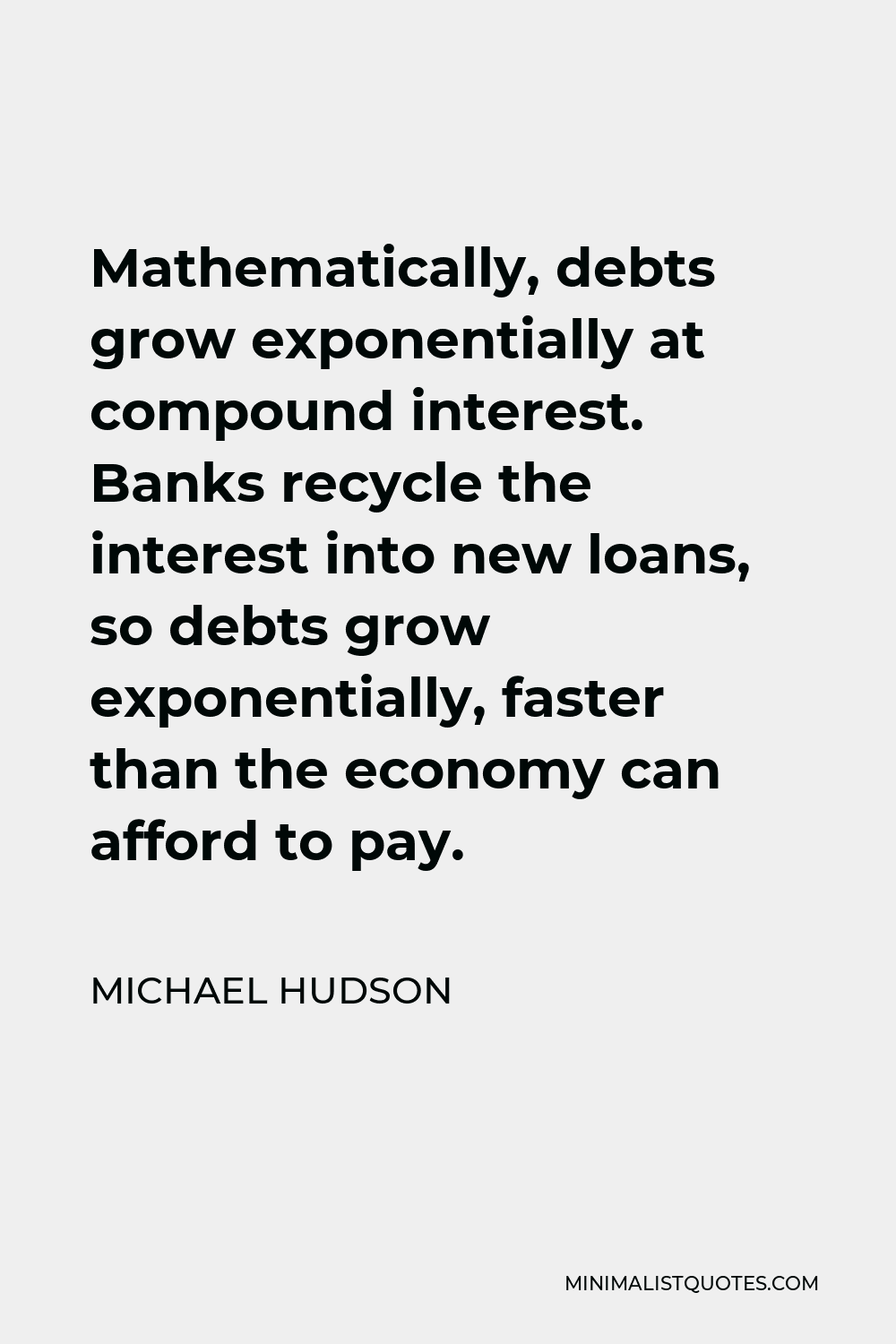The result of this anti-classical revolution you had just before World War I was that today, almost all the economic growth in the last decade has gone to the One Percent. It’s gone to Wall Street, to real estate.
MICHAEL HUDSONMathematically, debts grow exponentially at compound interest. Banks recycle the interest into new loans, so debts grow exponentially, faster than the economy can afford to pay.
More Michael Hudson Quotes
-





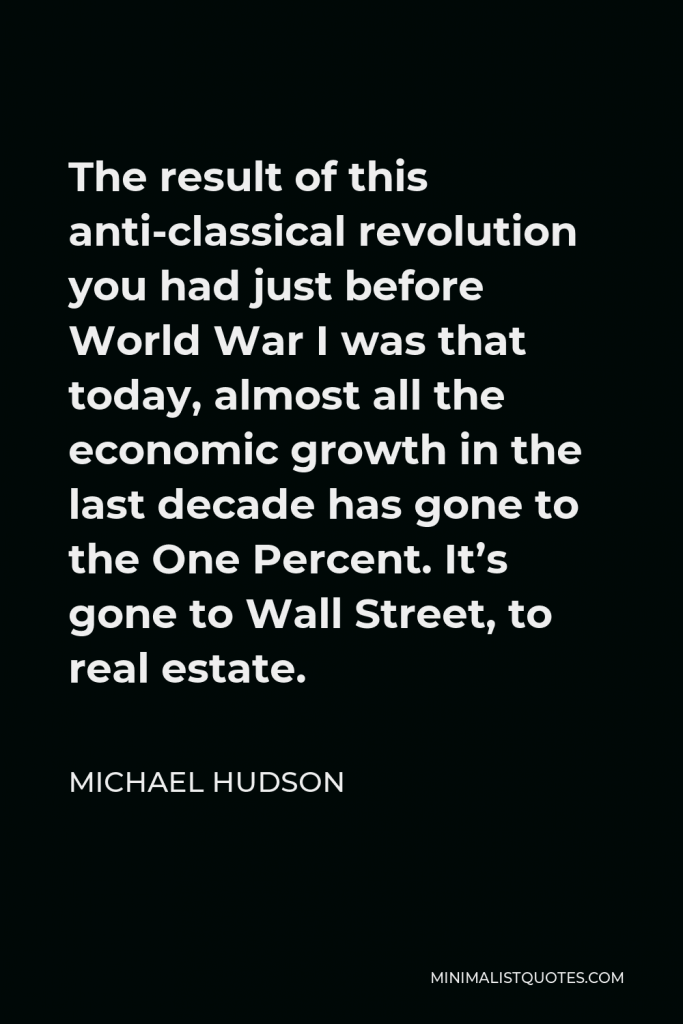

-





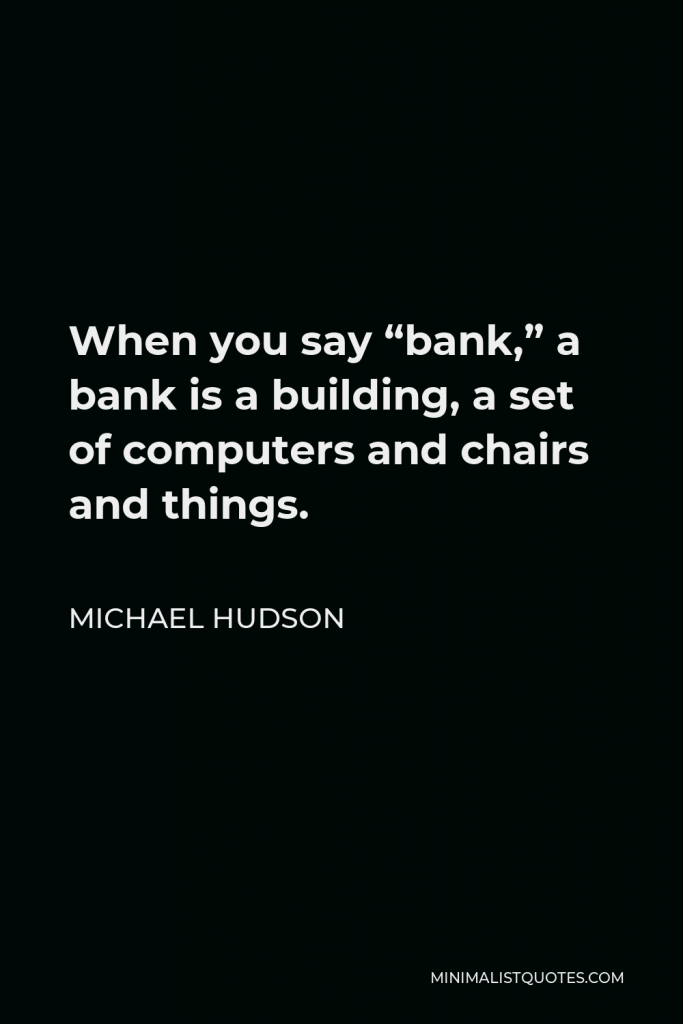

When you say “bank,” a bank is a building, a set of computers and chairs and things.
MICHAEL HUDSON -





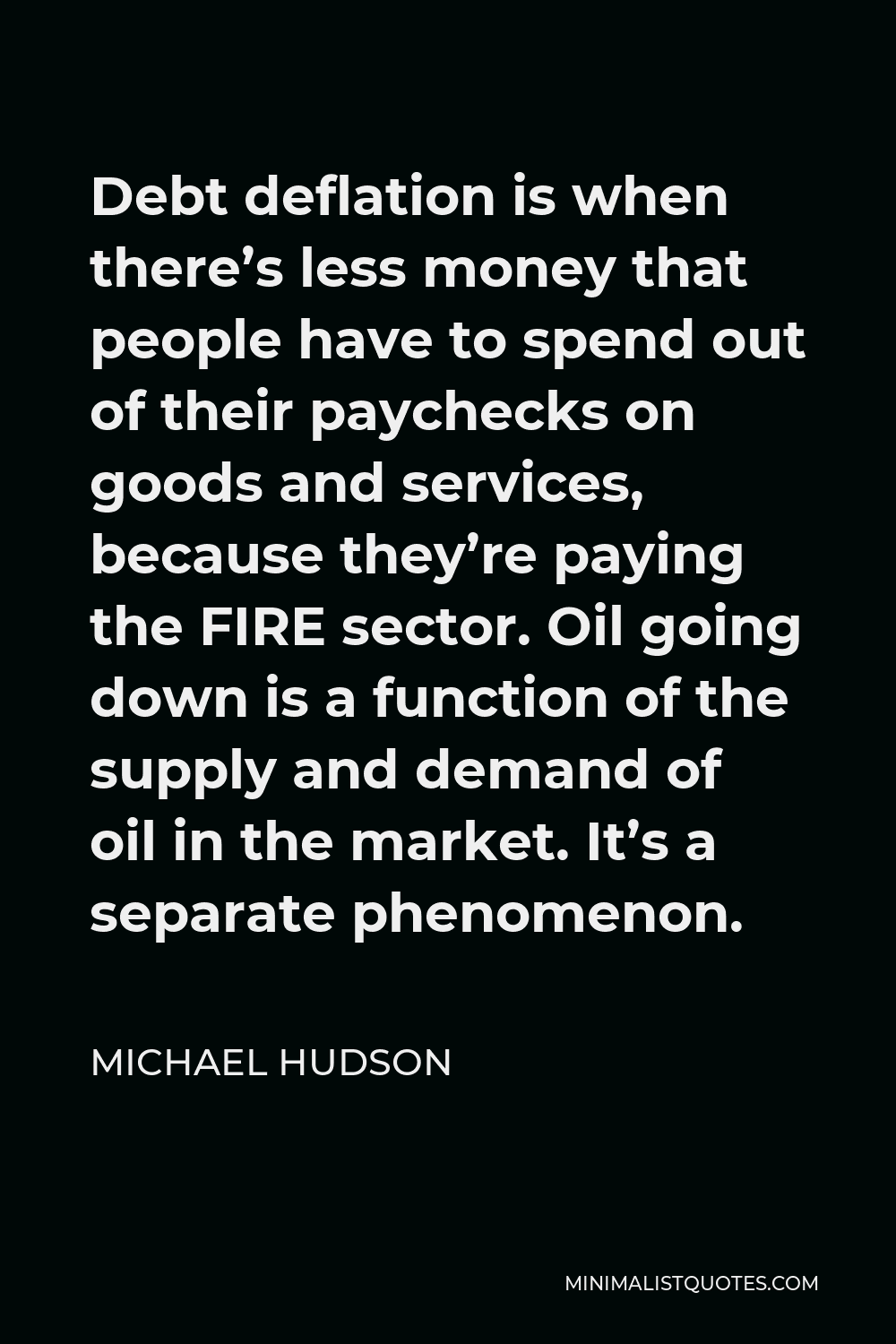
Debt deflation is when there’s less money that people have to spend out of their paychecks on goods and services, because they’re paying the FIRE sector. Oil going down is a function of the supply and demand of oil in the market. It’s a separate phenomenon.
MICHAEL HUDSON -





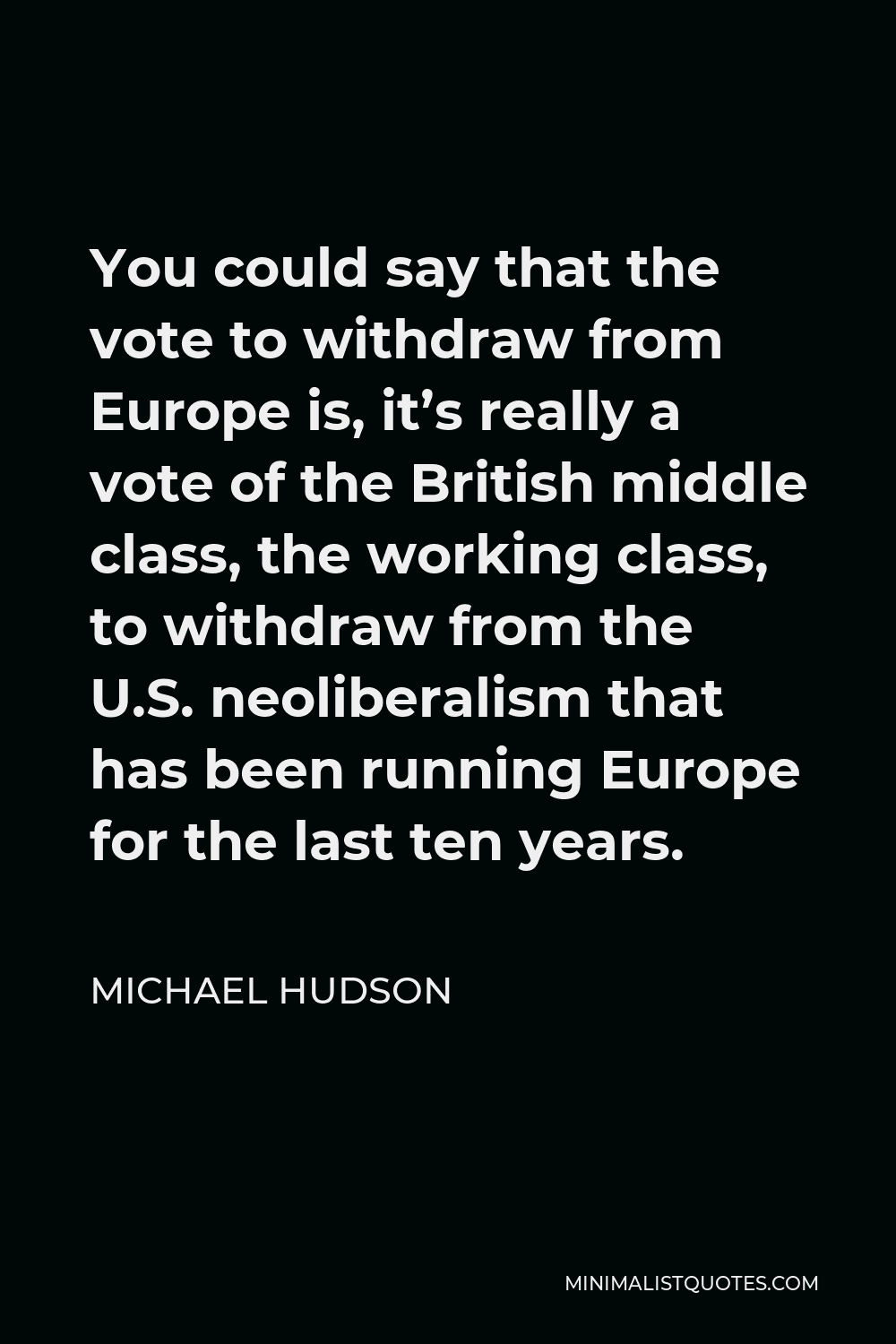
You could say that the vote to withdraw from Europe is, it’s really a vote of the British middle class, the working class, to withdraw from the U.S. neoliberalism that has been running Europe for the last ten years.
MICHAEL HUDSON -






If you have to pay about forty to forty-three percent of your income for housing, you also have to pay fifteen percent of your paycheck for the FICA for Social Security wage withholding.
MICHAEL HUDSON -





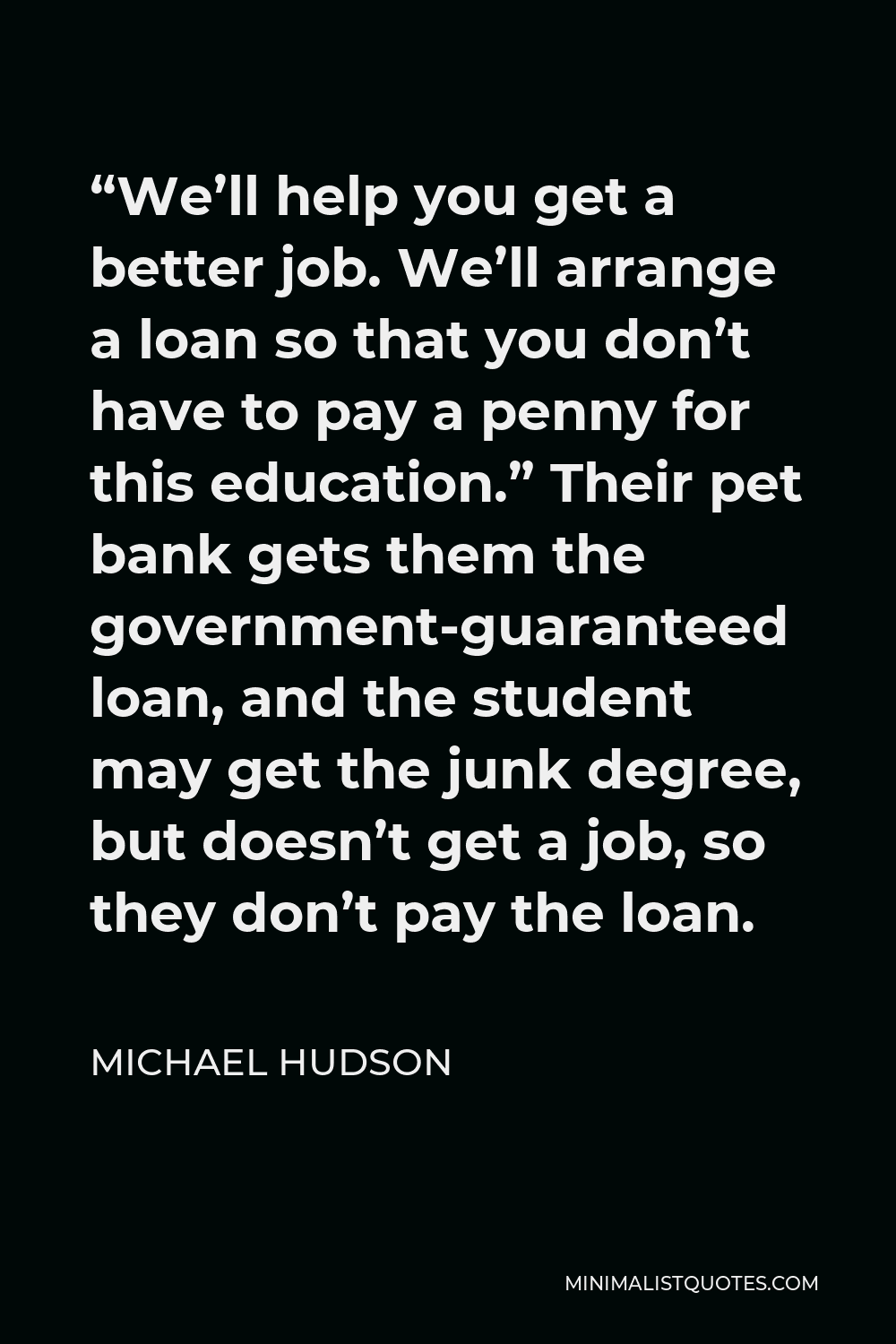
“We’ll help you get a better job. We’ll arrange a loan so that you don’t have to pay a penny for this education.” Their pet bank gets them the government-guaranteed loan, and the student may get the junk degree, but doesn’t get a job, so they don’t pay the loan.
MICHAEL HUDSON -





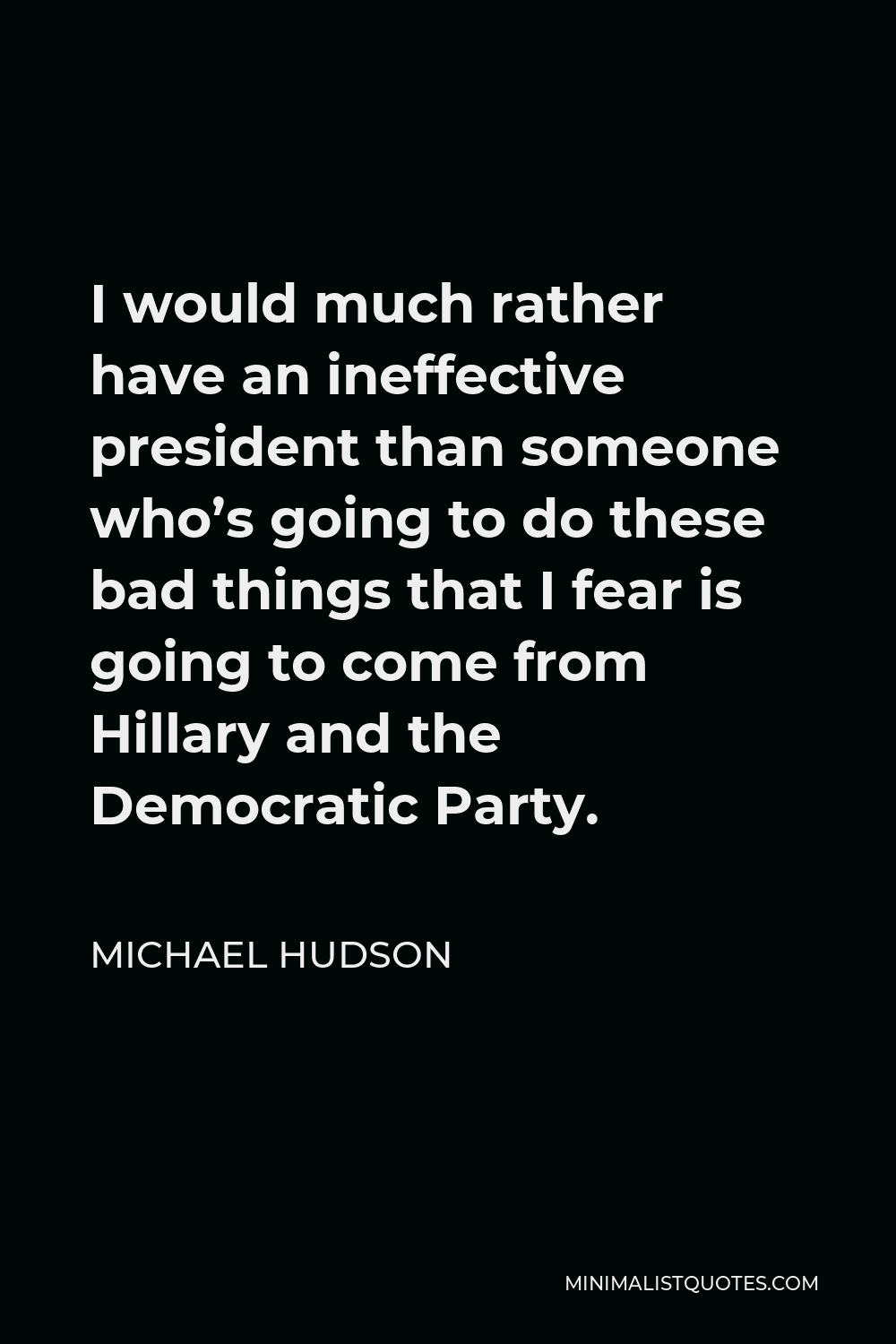
I would much rather have an ineffective president than someone who’s going to do these bad things that I fear is going to come from Hillary and the Democratic Party.
MICHAEL HUDSON -






When we say “people worry” about inflation, it’s mainly bondholders that worry. The labor force benefitted from the inflation of the ’50s, ’60s and ’70s.
MICHAEL HUDSON -





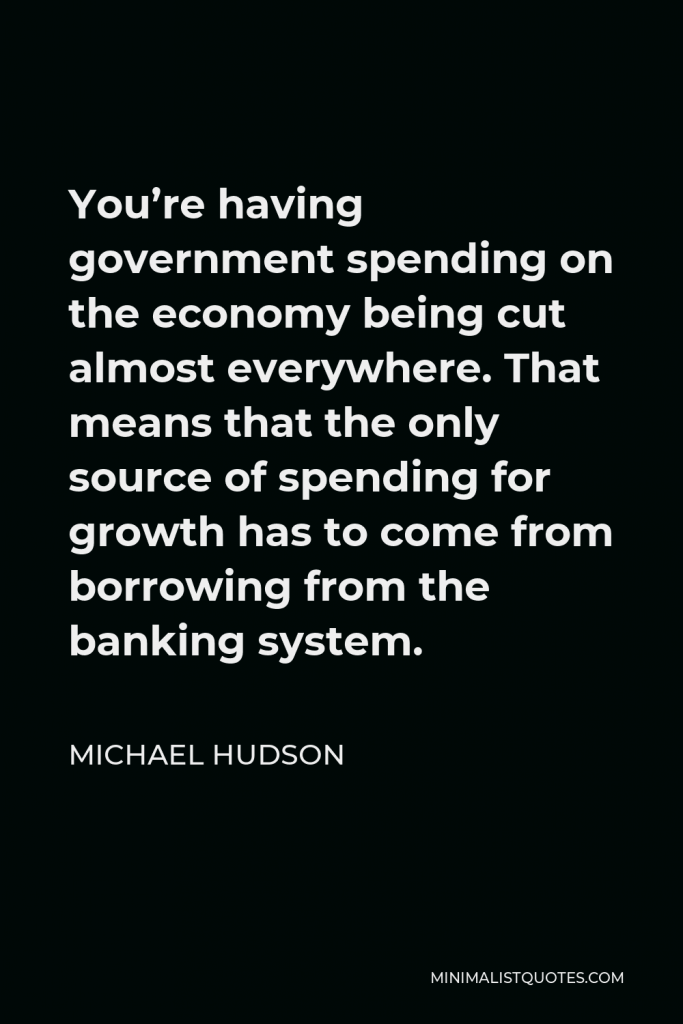

You’re having government spending on the economy being cut almost everywhere. That means that the only source of spending for growth has to come from borrowing from the banking system.
MICHAEL HUDSON -





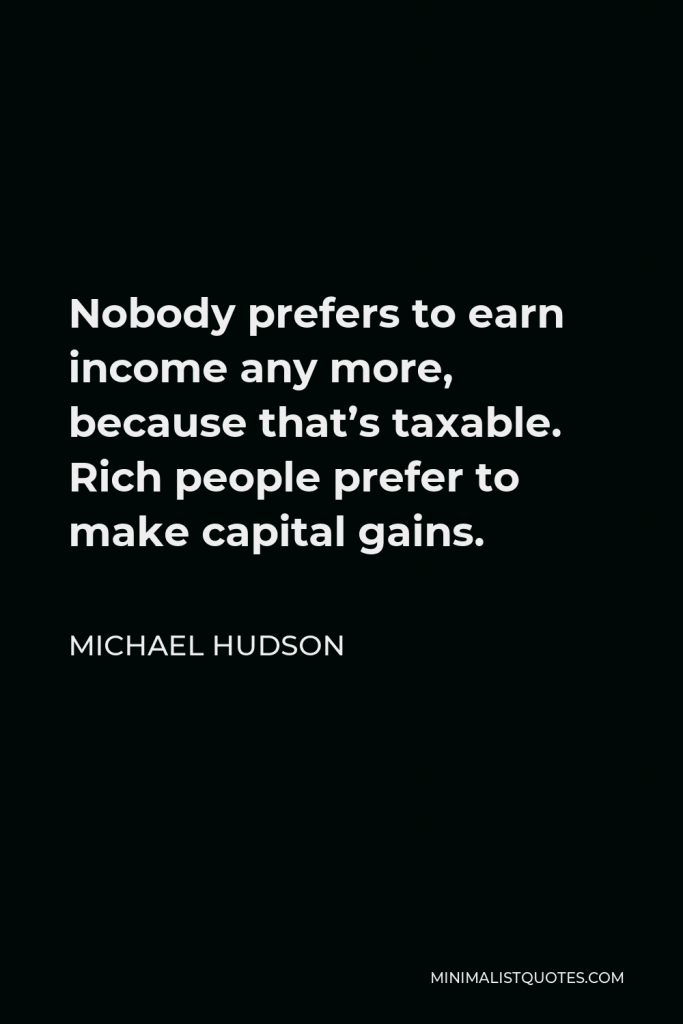

Nobody prefers to earn income any more, because that’s taxable. Rich people prefer to make capital gains.
MICHAEL HUDSON -





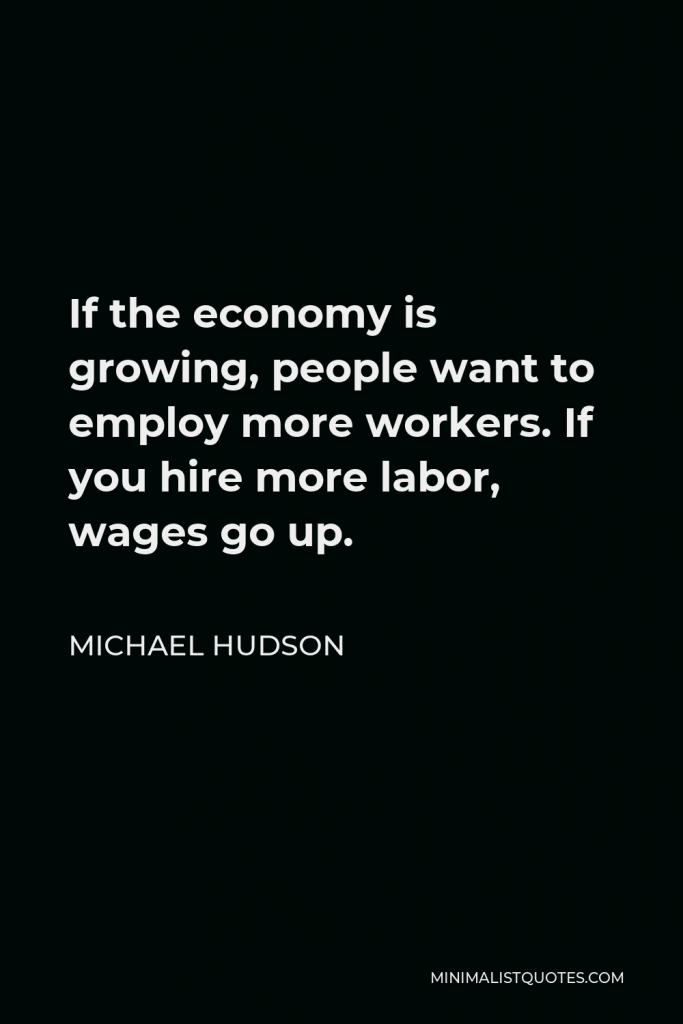

If the economy is growing, people want to employ more workers. If you hire more labor, wages go up.
MICHAEL HUDSON -





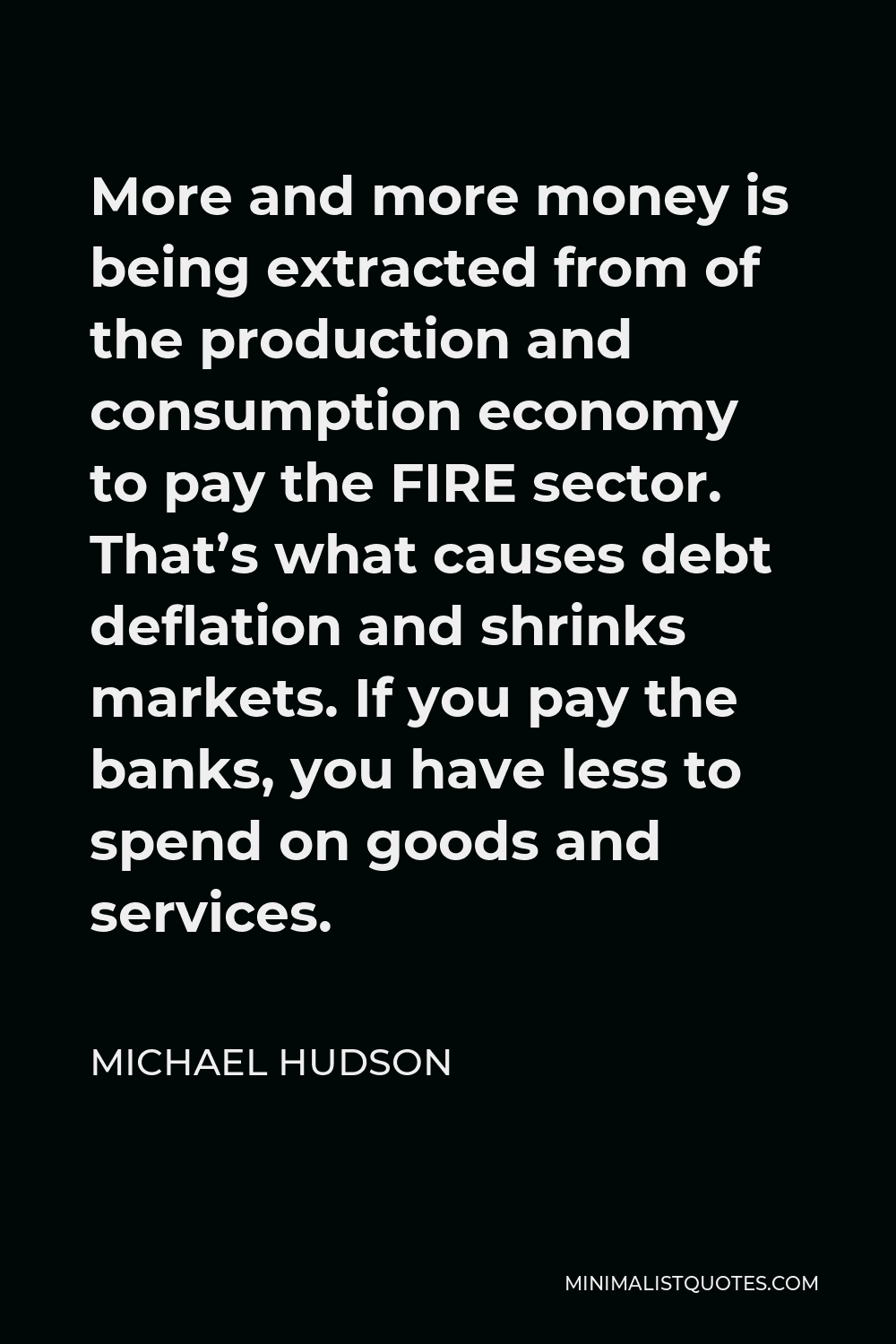
More and more money is being extracted from of the production and consumption economy to pay the FIRE sector. That’s what causes debt deflation and shrinks markets. If you pay the banks, you have less to spend on goods and services.
MICHAEL HUDSON -





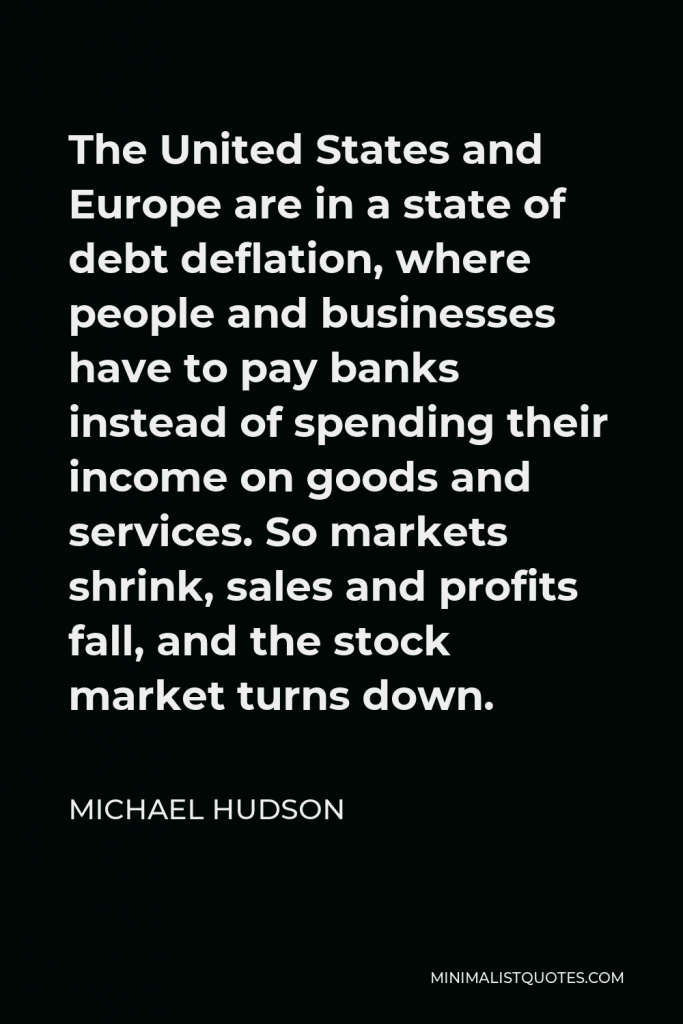

The United States and Europe are in a state of debt deflation, where people and businesses have to pay banks instead of spending their income on goods and services. So markets shrink, sales and profits fall, and the stock market turns down.
MICHAEL HUDSON -





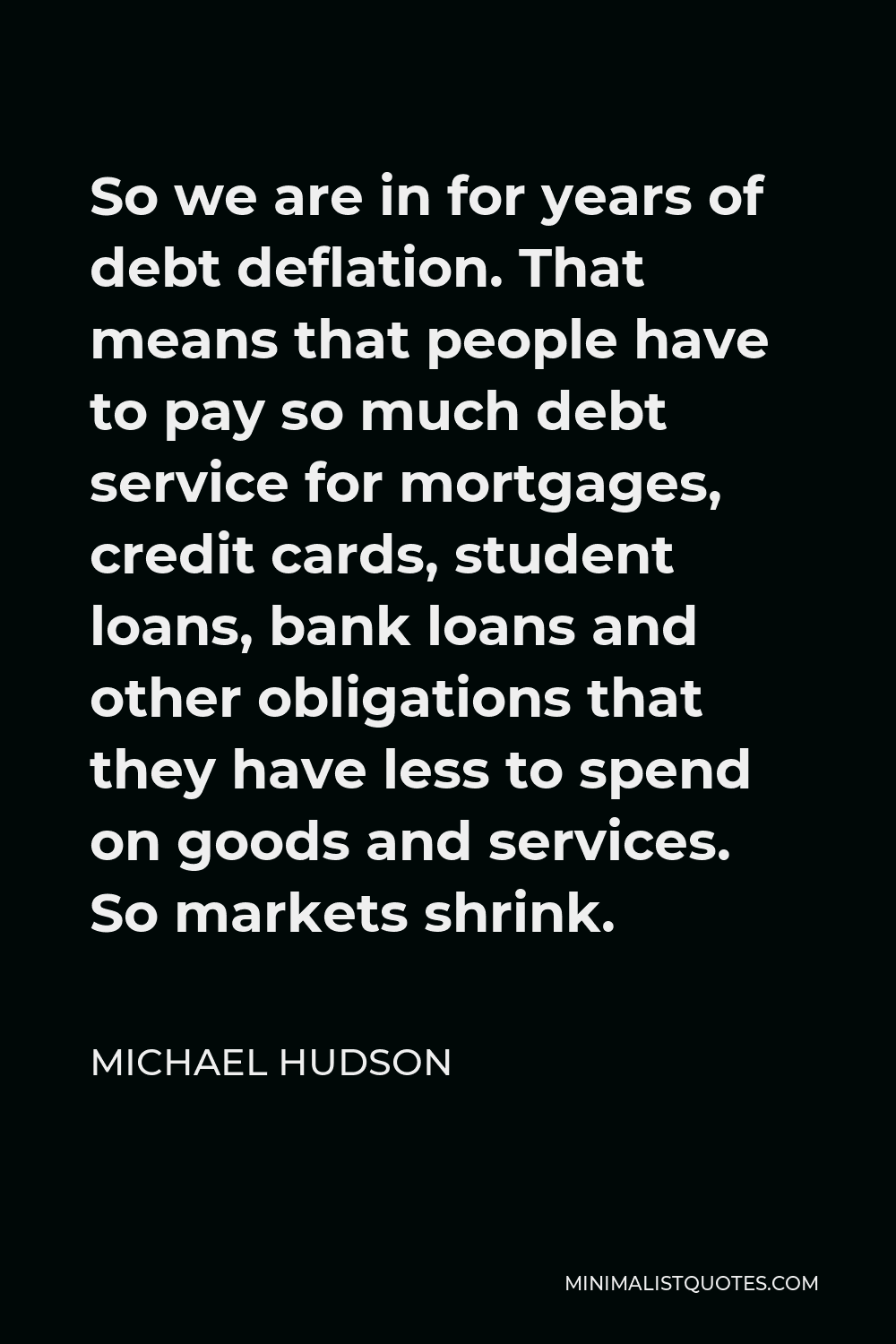
So we are in for years of debt deflation. That means that people have to pay so much debt service for mortgages, credit cards, student loans, bank loans and other obligations that they have less to spend on goods and services. So markets shrink.
MICHAEL HUDSON -





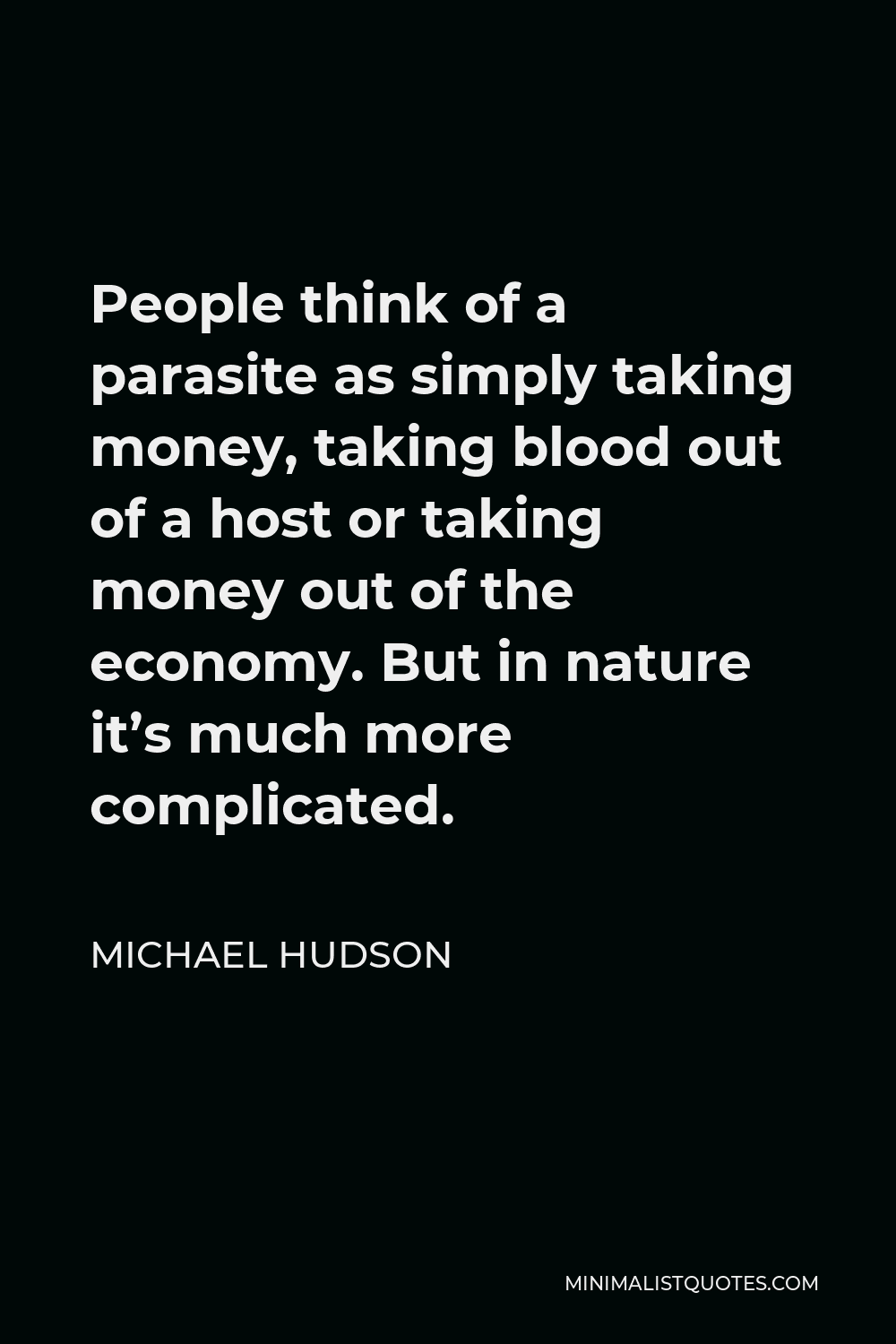
People think of a parasite as simply taking money, taking blood out of a host or taking money out of the economy. But in nature it’s much more complicated.
MICHAEL HUDSON -





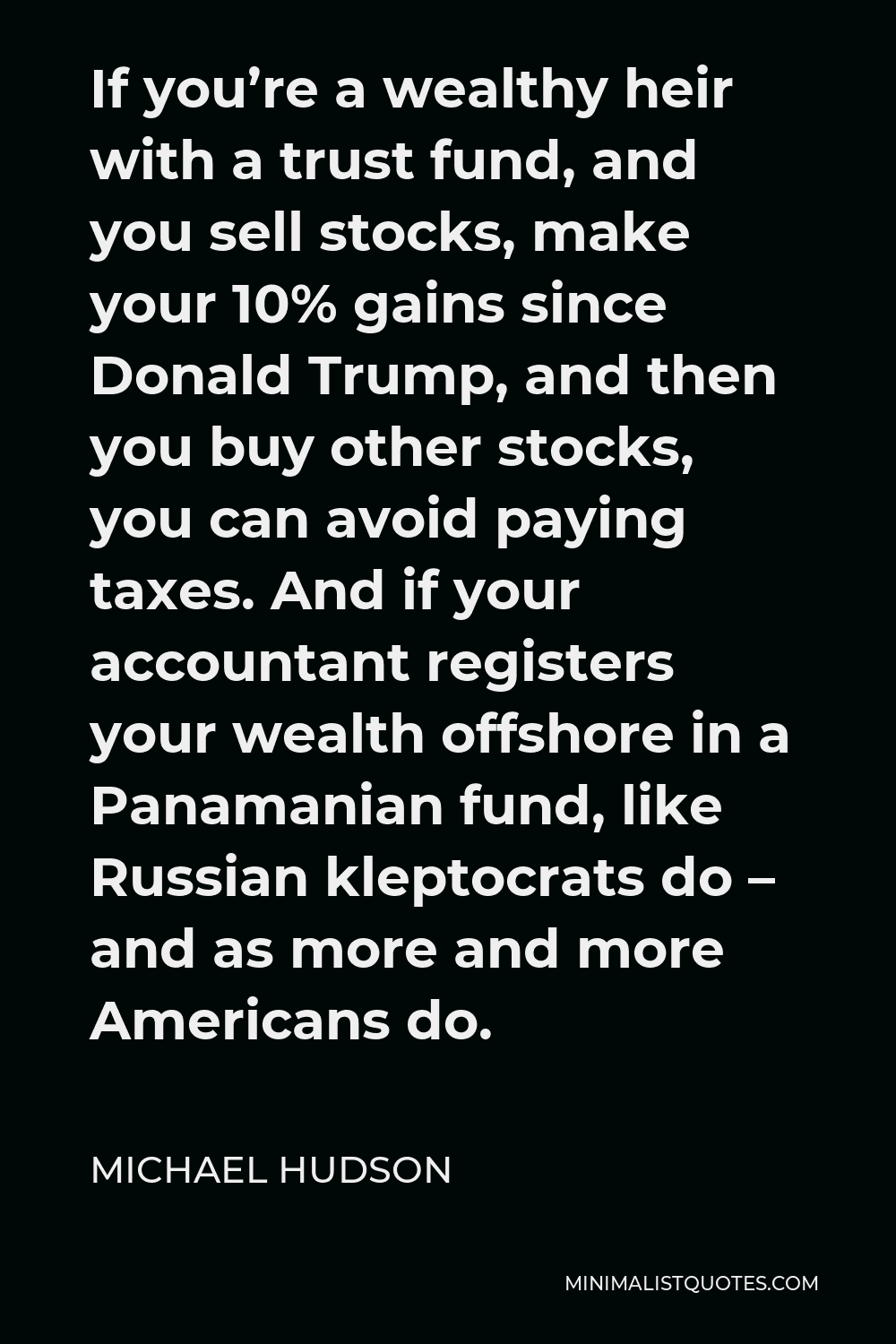
If you’re a wealthy heir with a trust fund, and you sell stocks, make your 10% gains since Donald Trump, and then you buy other stocks, you can avoid paying taxes. And if your accountant registers your wealth offshore in a Panamanian fund, like Russian kleptocrats do – and as more and more Americans do.
MICHAEL HUDSON
